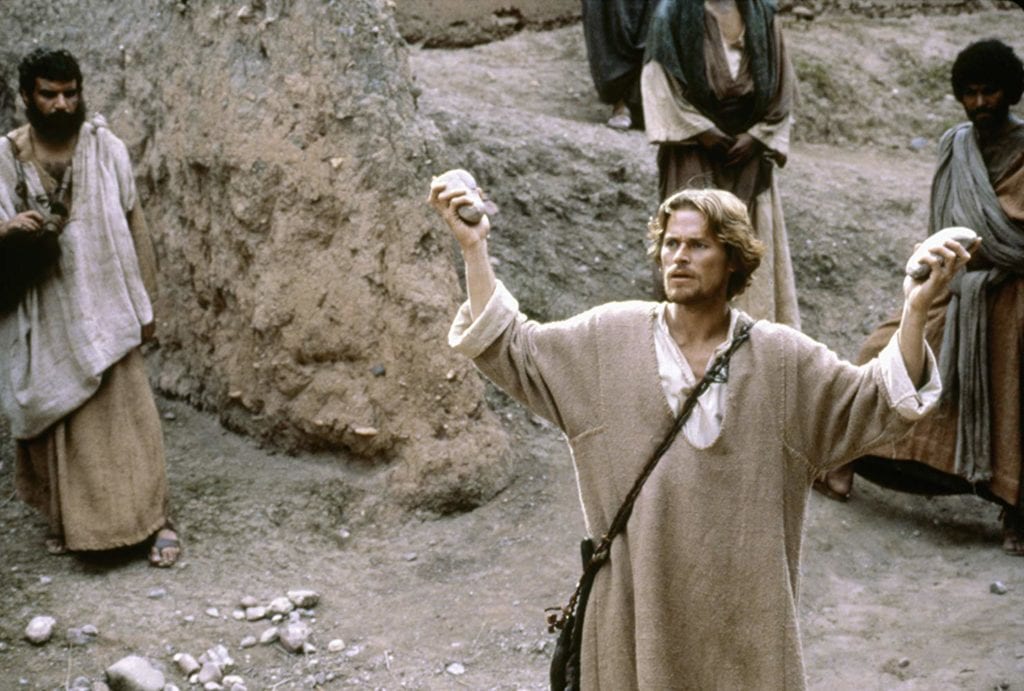
Dir. Martin Scorsese. 164 minutes.
“The Last Temptation of Christ” gives us a new vision of the life of Jesus. This Jesus (Willem Dafoe) is not perfect, or even good: he’s a mediocrity and a misanthrope, pushed and pulled between his fears and his desires. Director Martin Scorsese shows us a Christ who is human, beset by doubt and resentment, but who ultimately succeeds in becoming great.
“The Last Temptation of Christ” is gritty and minimalist, as much for practical reasons as theoretical ones. Shooting in Morocco on a modest budget, Scorsese would have been unable to deliver a lavish, DeMille-style Biblical epic even if he’d tried. “We worked in a state of emergency,” Scorsese later recalled. The film’s dinginess adds to its feeling of reality. When was the last time you saw a Bible movie you’d call “spontaneous”?
This is a de-mythologizing film, presenting us with a Gospel story just different enough from the familiar tales to imbue it with a fresh truth and immediacy. The film supposes that the last, and greatest, temptation of Jesus would not have been for power or possessions, but for the comfort of a normal life, growing to old age surrounded by friends and family instead of being publicly crucified.
Some viewers, and non-viewers, are offended by the film’s idiosyncrasies and the liberties it takes with its source material. (The fact that Harvey Keitel’s Judas speaks with a Brooklyn accent has been a particularly durable source of outcry.) But perhaps the story of Jesus is most powerful when it provokes us to question what we think.




